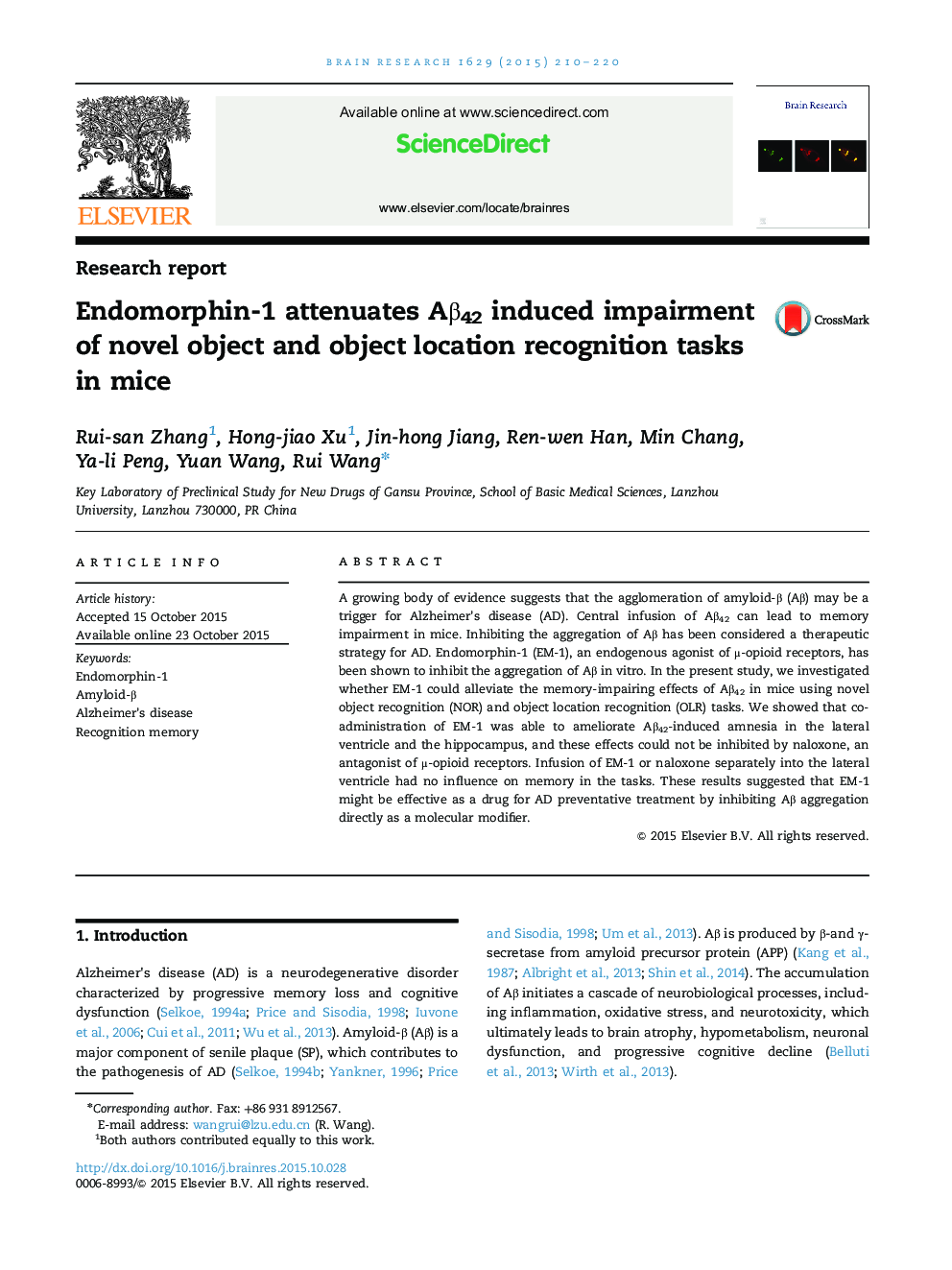| کد مقاله | کد نشریه | سال انتشار | مقاله انگلیسی | نسخه تمام متن |
|---|---|---|---|---|
| 6262757 | 1645516 | 2015 | 11 صفحه PDF | دانلود رایگان |

- Infusion of Aβ42 into lateral ventricle or hippocampus impairs memory of mice.
- Co-administrated endomorphin-1 inhibits the memory-impairing effect of Aβ42.
- The above effects of endomorphin-1 was not mediated by μ-opioid receptors.
- EM-1 might be effective as a drug for AD preventive treatment.
A growing body of evidence suggests that the agglomeration of amyloid-β (Aβ) may be a trigger for Alzheimer׳s disease (AD). Central infusion of Aβ42 can lead to memory impairment in mice. Inhibiting the aggregation of Aβ has been considered a therapeutic strategy for AD. Endomorphin-1 (EM-1), an endogenous agonist of μ-opioid receptors, has been shown to inhibit the aggregation of Aβ in vitro. In the present study, we investigated whether EM-1 could alleviate the memory-impairing effects of Aβ42 in mice using novel object recognition (NOR) and object location recognition (OLR) tasks. We showed that co-administration of EM-1 was able to ameliorate Aβ42-induced amnesia in the lateral ventricle and the hippocampus, and these effects could not be inhibited by naloxone, an antagonist of μ-opioid receptors. Infusion of EM-1 or naloxone separately into the lateral ventricle had no influence on memory in the tasks. These results suggested that EM-1 might be effective as a drug for AD preventative treatment by inhibiting Aβ aggregation directly as a molecular modifier.
Journal: Brain Research - Volume 1629, 10 December 2015, Pages 210-220